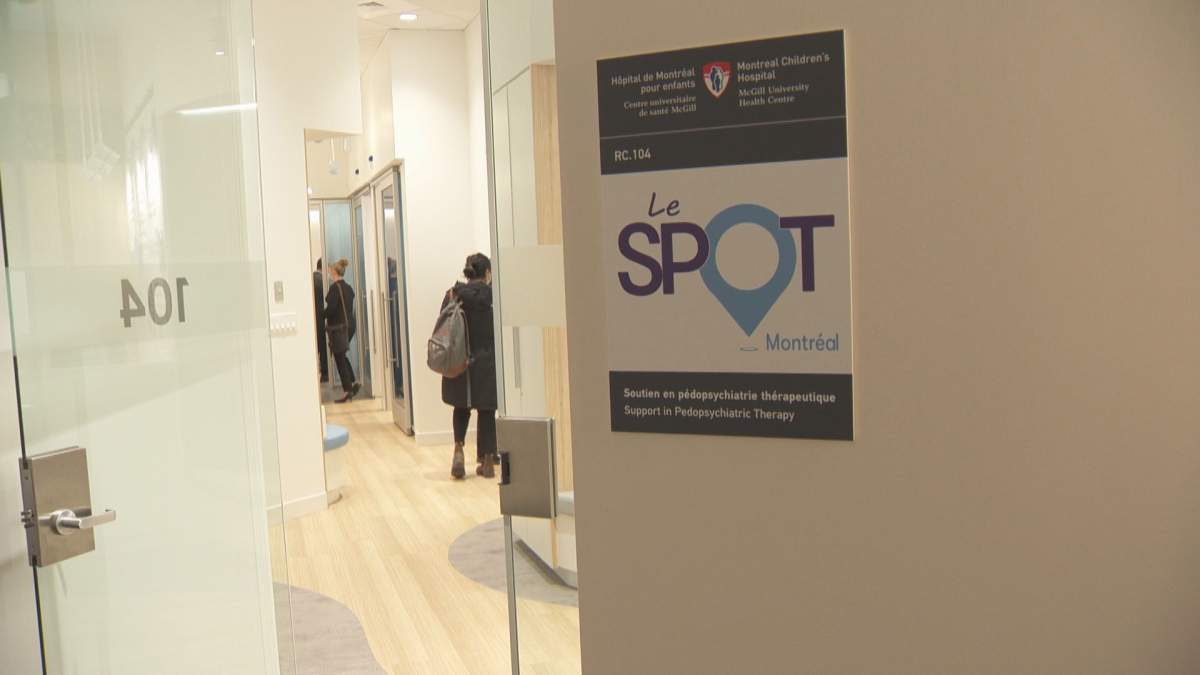Five years ago, Simone Aslan, who now identifies as non-binary, was struggling with mental health issues.

At 15 years old, Aslan had to do what they considered the hardest thing in their life.
“I went to my mother and I told her ‘listen, I need help. I need you to take me to the hospital,'” Aslan said, recalling how scared they felt at the time.
Aslan received inpatient psychiatric care at the Montreal Children’s Hospital.
Now 20, they’ve learned a lot from their experience, including letting go of the perception that things get better, even if there might be some truth to it.
“There are days that I can’t get out of bed,” Aslan said. “There are days that I can’t attend class either because I’m autistic and overwhelmed or I’m stressed or things are happening with my life.”
What Aslan can get behind is the fact that things can change.
“Today might not be a better (day) but it’s a different one and … I have learned to cope with those bad days,” they said.
They credit their stay at the hospital and the subsequent years of care, for not only saving their life but making it one worth living.
“I have learned to cope in a way that I live a very fulfilling life,” Aslan said, adding they were lucky they had access to consistent psychiatric care – that isn’t the case for everyone.

Dr. Martin Gignac is chief of the child and adolescent psychiatry department at the Children’s. He agrees access to care is critical, especially with teens in crisis.
Over the last two years of the pandemic, the problem has become even more acute with a 35 per cent increase in teens presenting at the hospital’s ER due to anxiety disorders, suicidal ideation or suicide attempts.

Get weekly health news
“A lot of them had to be kept at the hospital because of the lack of rapid access to certain services outside in the community,” Gignac said.
Renée Vézina, president of the Montreal Children’s Hospital Foundation explained the delay between an initial hospital visit and the start of therapy also means many teens end up having to go back to the ER.
The average wait time for community-based mental health services is 180 days, according to the foundation’s website, and as many as 20 per cent of teens in crisis treated in the emergency department will return to the ER within 30 days.
But all that is about to change, with the opening of a new outpatient centre within walking distance of the hospital.
“This centre really is going to fill that gap,” Vézina said.
Le SPOT Montréal will be offering a 12-week intensive program for teens in crisis with access to individual, group and family therapy sessions starting on March 21.
“So this is a program that we have developed to offer rapid service and intensive intervention to teenagers that present themselves to the emergency room in distress and will be able to be discharged from the hospital but receive care immediately after a visit in the emergency room,” Gignac said.
Health professionals with Le SPOT aim to have patients evaluated within 72 hours of being referred by emergency department specialists.
And while the main goal is to help teens resolve an immediate suicidal crisis, Gignac said it’s also about prevention and giving teens the tools to cope.
“So skills-building, improving communication within the family, making sure that they’ve developed a sense of better self-esteem so that they don’t end up showing another suicidal crisis like this in the future,” he said.
“They’re going to be able to find other ways to manage emotional distress or difficulties that they face in their lives,” he said.
Aslan says the new centre is great news for youth with mental health challenges.
“In Quebec, there’s a huge wait time for all sorts of mental health services,” Aslan said. “If this centre can provide to kids who were like me access to consistent psychiatric care even once they are out of the hospital, I think that is really exciting and a really valuable resource.”
Thanks to the foundation’s fundraising efforts, Le SPOT Montréal will be able to provide care to 1,000 teens every year for at least the next ten years.
“We went to see our donors and RBC Foundation and the Amiel Family Foundation (are) both key partners with $2 million each … we’ve raised basically $12 million in six months,” Vézina said.
If you or anyone you know is in crisis and in need of immediate assistance dial 911.
Quebec Parents worried about their children’s mental state can call Info-Santé at 811, Kids Help Phone at 1-800-668-6868 or Suicide Action Montreal at 1-866-APPELLE.












Comments
Want to discuss? Please read our Commenting Policy first.